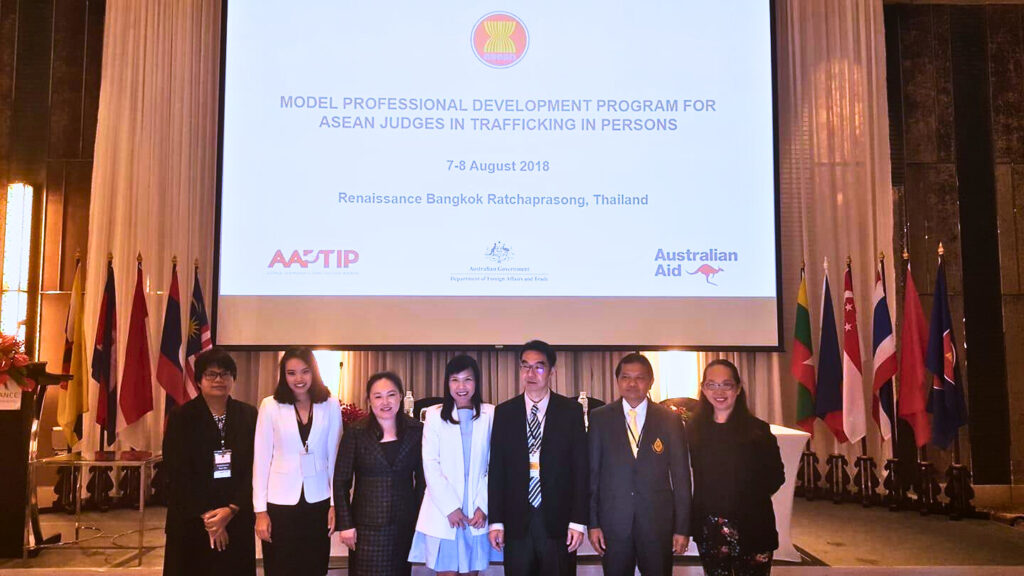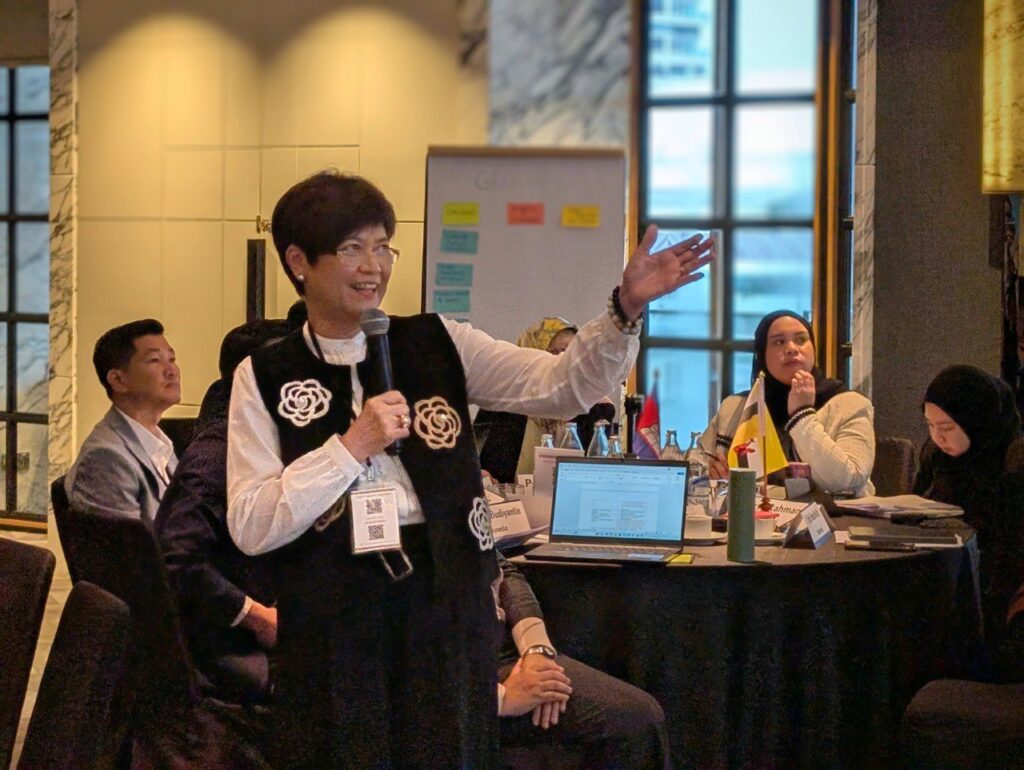As the crime of trafficking in persons becomes increasingly complex - driven by digital technologies, advancements in crypto-currencies and AI - judges around the ASEAN region are keeping pace by updating their knowledge and skills.
Recognising the rapidly developing landscape and new patterns of organised crime across the region the Council of ASEAN Chief Justices, in partnership with the Australian Government funded ASEAN-Australia Counter Trafficking program and the United Nations Office on Drugs and Crime (UNODC) Southeast Asia and the Pacific, have come together to revise the Model Professional Development Program for ASEAN Judges on Trafficking in Persons.
This initiative also responds directly to the Cebu Declaration adopted at the 11th Council of ASEAN Chief Justices Meeting in 2024, which called for enhanced judicial education on trafficking in persons.
Originally developed with support from Australia in 2018 as part more than 20 years of counter trafficking support to ASEAN, the model training program was a landmark in judicial education and cooperation. However, as Chancellor Rosmari Carandang of the Philippine Judicial Academy noted in her opening remarks at the regional workshop in Bangkok (May 2025), the world has changed dramatically since then. She emphasised the need to revitalise the framework to ensure that it remains responsive, relevant, and resilient.
Judge Varamon Ramangkura of the Supreme Court of Thailand, who contributed to the original 2018 Model, reinforced this sentiment: “Judges must evolve in step with these challenges. This initiative to revise the model aligns with the strategic priorities of Thailand’s Court of Justice. It is more than effort to modernise – it is a vital platform for regional knowledge-sharing and judicial collaboration.”

Photo: Judge Varamon Ramangkura (centre) at the development of the first model professional development program for ASEAN judges in trafficking in persons in 2018.
The revision process provides an important opportunity to examine the contemporary knowledge and skillsets required for effective adjudication of trafficking in persons cases.
As UNODC Regional Coordinator Dr Rebecca Miller highlighted, very few traffickers are prosecuted globally, often because victims are not identified or supported to testify. Judges must be equipped to apply victim-sensitive and trauma-informed approaches to ensure justice is served.
A central focus of the revised curriculum is the integration of victim-centred and trauma-informed approaches, which recognises the profound psychological impact of trafficking on victim-survivors and aims to prevent re-traumatisation during court proceedings.
These practices prioritise the dignity, safety, and agency of victims, ensuring they are treated with respect and supported throughout the judicial process. Research shows that when judges apply these principles, victims are more likely to participate meaningfully in trials, provide coherent testimony, and remain engaged - ultimately improving conviction rates and contributing to their healing and empowerment.
The revised model training program will reflect emerging challenges and best practices in trafficking in persons adjudication, promote alignment in judicial training across ASEAN, and enhance access through translation and digital dissemination via an ASEAN portal. The next steps in revising the program include validating the new content for endorsement, then institutionalising it within national judicial academies across ASEAN.
By embedding a stronger victim-sensitive and trauma-informed approach in judicial proceedings and strengthening collaboration across courts, the revised program will help ensure that ASEAN judges - numbering over 10,000 across the region – are well-equipped to deliver justice in increasingly complex trafficking cases.

Share post by Australia Ambassador to ASEAN below: